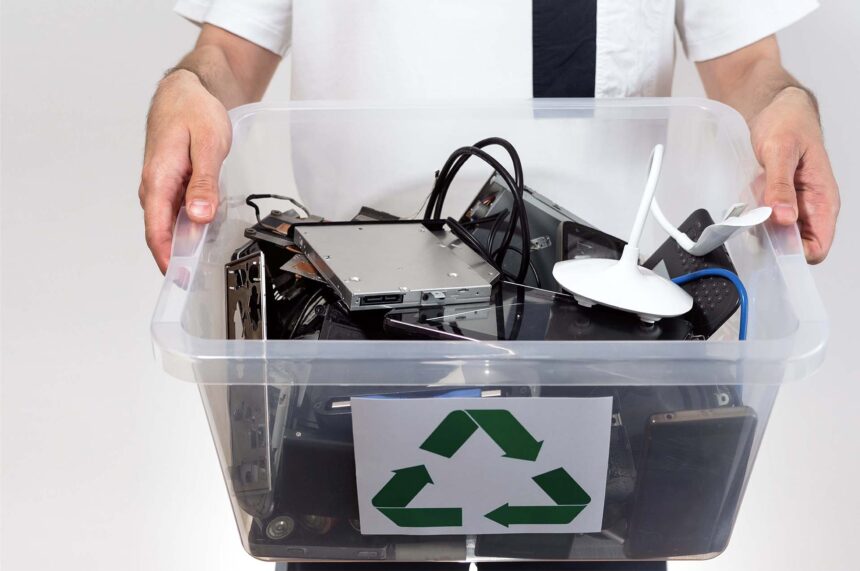In an age where technology evolves at breakneck speed, the issue of electronic waste (e-waste) looms large. As our dependence on electronic devices grows, so does the need for effective solutions to manage the disposal and recycling of these products responsibly. Coupled with the critical concern of data security, the process of e-waste management becomes even more complex. However, amidst these challenges, initiatives like Zero E-Waste in the UK offer a beacon of hope in the pursuit of sustainable practices.
The Dilemma of Data Destruction
Data security is paramount in today’s digital landscape. Whether it’s personal information, corporate data, or sensitive government records, ensuring that data is irreversibly destroyed is crucial. The process of data destruction involves rendering data inaccessible, typically through methods such as overwriting, degaussing, or physical destruction of the storage media.
However, data destruction isn’t just about deleting files or formatting drives. With the advancement of technology, data recovery methods have become increasingly sophisticated, making it imperative to employ robust data destruction techniques to prevent unauthorized access to sensitive information. Moreover, with stringent data protection regulations like GDPR (General Data Protection Regulation) in place, organizations face legal obligations to securely dispose of data.
The Rise of Electronic Waste and the Urgency for Solutions
As technology evolves, so does our appetite for newer, faster, and more feature-rich devices. While this relentless innovation drives progress, it also leads to a staggering accumulation of electronic waste. According to the Global E-Waste Monitor 2020, the world generated approximately 53.6 million metric tons of e-waste in 2019, a figure projected to reach 74 million metric tons by 2030 if left unchecked.
E-waste poses significant environmental and health risks due to the presence of hazardous materials like lead, mercury, and cadmium. Improper disposal of e-waste results in soil and water contamination, air pollution, and adverse health effects for those involved in the informal recycling sector. Additionally, the extraction of raw materials for electronic devices contributes to habitat destruction and carbon emissions, exacerbating the climate crisis.
The Imperative of E-Waste Recycling
To mitigate the environmental and social impacts of e-waste, recycling presents a compelling solution. E-waste recycling involves the recovery of valuable materials from discarded electronics, such as metals, plastics, and glass, for reuse in manufacturing processes. By diverting e-waste from landfills and incinerators, recycling conserves natural resources, reduces energy consumption, and minimizes greenhouse gas emissions.
Furthermore, e-waste recycling stimulates the circular economy by closing the loop on resource extraction and consumption. It promotes sustainable consumption patterns and encourages product design for longevity, repairability, and recyclability. However, effective e-waste recycling requires collaboration among stakeholders, including manufacturers, consumers, governments, and recycling facilities, to establish efficient collection systems and ensure proper disposal practices.
Zero E-Waste: Pioneering Sustainable Solutions
Amidst the e-waste crisis, organizations like Zero E-Waste in the UK are leading the charge towards sustainable practices. Zero E-Waste offers comprehensive e-waste management solutions, including collection, recycling, and data destruction services. With a commitment to environmental stewardship and data security, Zero E-Waste employs state-of-the-art technologies and stringent protocols to ensure the responsible disposal of electronic devices.
One of the key pillars of Zero E-Waste’s approach is education and awareness. By engaging with businesses, educational institutions, and communities, Zero E-Waste advocates for responsible consumption and waste reduction strategies. Through outreach programs and partnerships, they empower individuals and organizations to make informed decisions about their electronic devices and disposal methods.
Conclusion
In conclusion, the twin challenges of data destruction and e-waste management demand urgent attention in our digital age. As we navigate the complexities of technology, it is essential to prioritize sustainability and ethical considerations in our consumption and disposal practices. Initiatives like Zero E-Waste exemplify the potential for innovative solutions to address these challenges while promoting a more circular and responsible approach to resource management. By embracing the principles of reduce, reuse, and recycle, we can collectively mitigate the impacts of e-waste and pave the way towards a more sustainable future.


